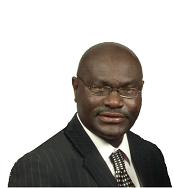The African Union ministerial candidature committee has advised Nigeria and Mauritania to hold consultations and agree on a consensus candidate for the post of the Deputy Secretary-General of International Telecommunications Union.
The News Agency of Nigeria learnt that the candidature committee met on the sidelines of the AU summit in Malabo to select a consensus African candidate for the post.
However, the committee failed to break a deadlock as neither Nigeria nor Mauritania was willing to withdraw their candidate.
Members of the committee include Algeria, Angola, Benin, Burundi, Cameroon, Chad, Djibouti, Gambia, Malawi, Mauritius, Senegal, Sierra Leone, South Africa, Tunisia and Uganda.
Nigeria’s candidate for the ITU top job is Shola Taylor, 58, a former Chairman of the ITU Radio Regulations Board and a leading authority on telecommunications in Africa.
Taylor has over 30 years postgraduate experience in international telecommunications, having worked at Intelsat, Washington DC USA; ITU, Geneva, Switzerland; Inmarsat, London UK and NITEL.
NAN reports that ECOWAS has already endorsed Nigeria’s candidate for the 2015 to 2019 term of the office.
“The Nigeria delegation took a stance not to concede to Mauritania, more as our candidate has been endorsed by ECOWAS,” a Nigerian diplomat familiar with the negotiations told NAN.
The Mauritanian candidate is Fatimetou Mohammed-Saleck.
NAN also reports that with the Nigerian and Mauritanian candidates remaining in the race, Africa would likely present two candidates at the elections in Busan, South Korea in October/November 2014.
The other candidates for the election are from Canada, Poland and the United Kingdom.
Every four years, during its Plenipotentiary Conference, member-states of ITU meet to elect the senior management team, members of council and the Radio Regulations Board.
The Plenipotentiary Conference also elects the Member States that will constitute the next ITU Council.
Previous ArticleBoko Haram is anti-Islam – Oloyede
Next Article World Cup: Social media users reach 230m


